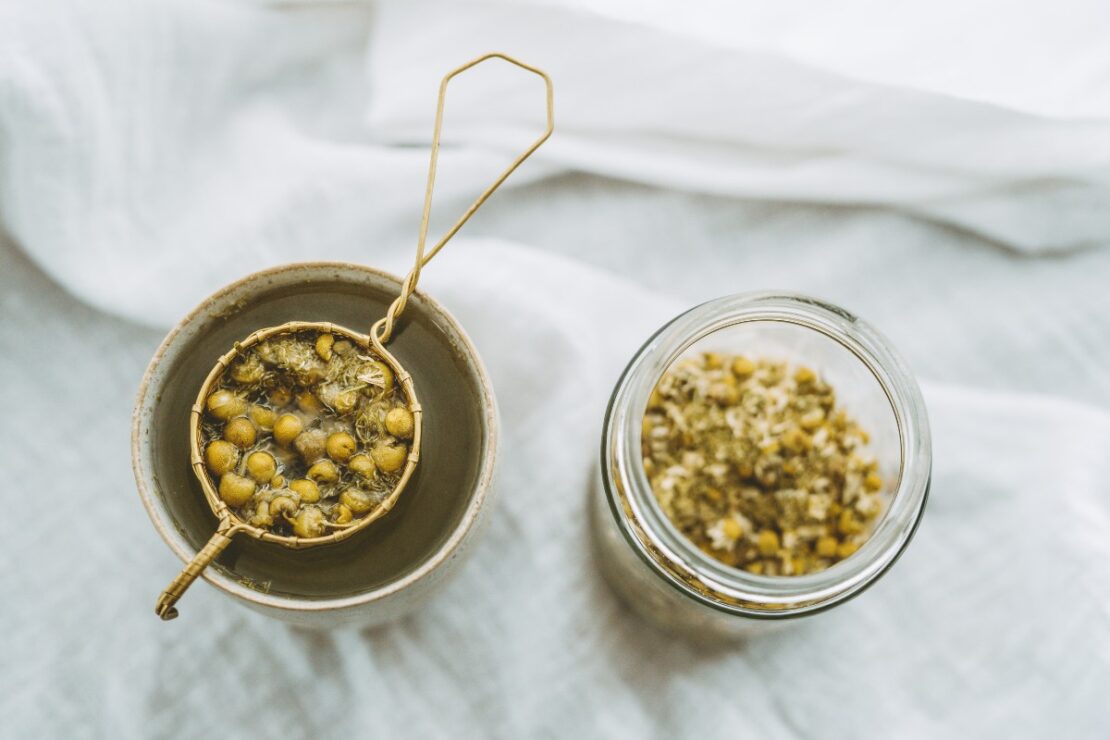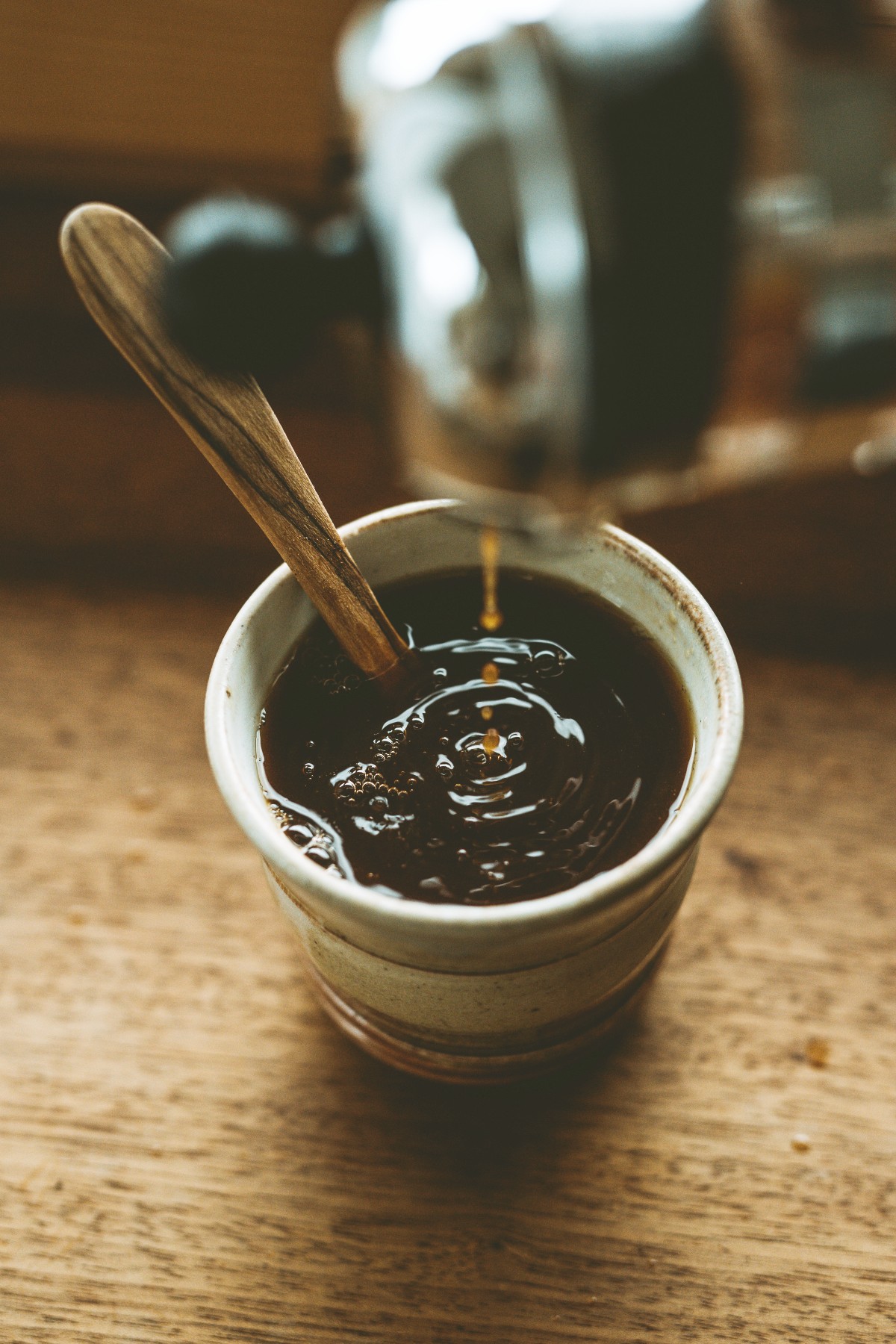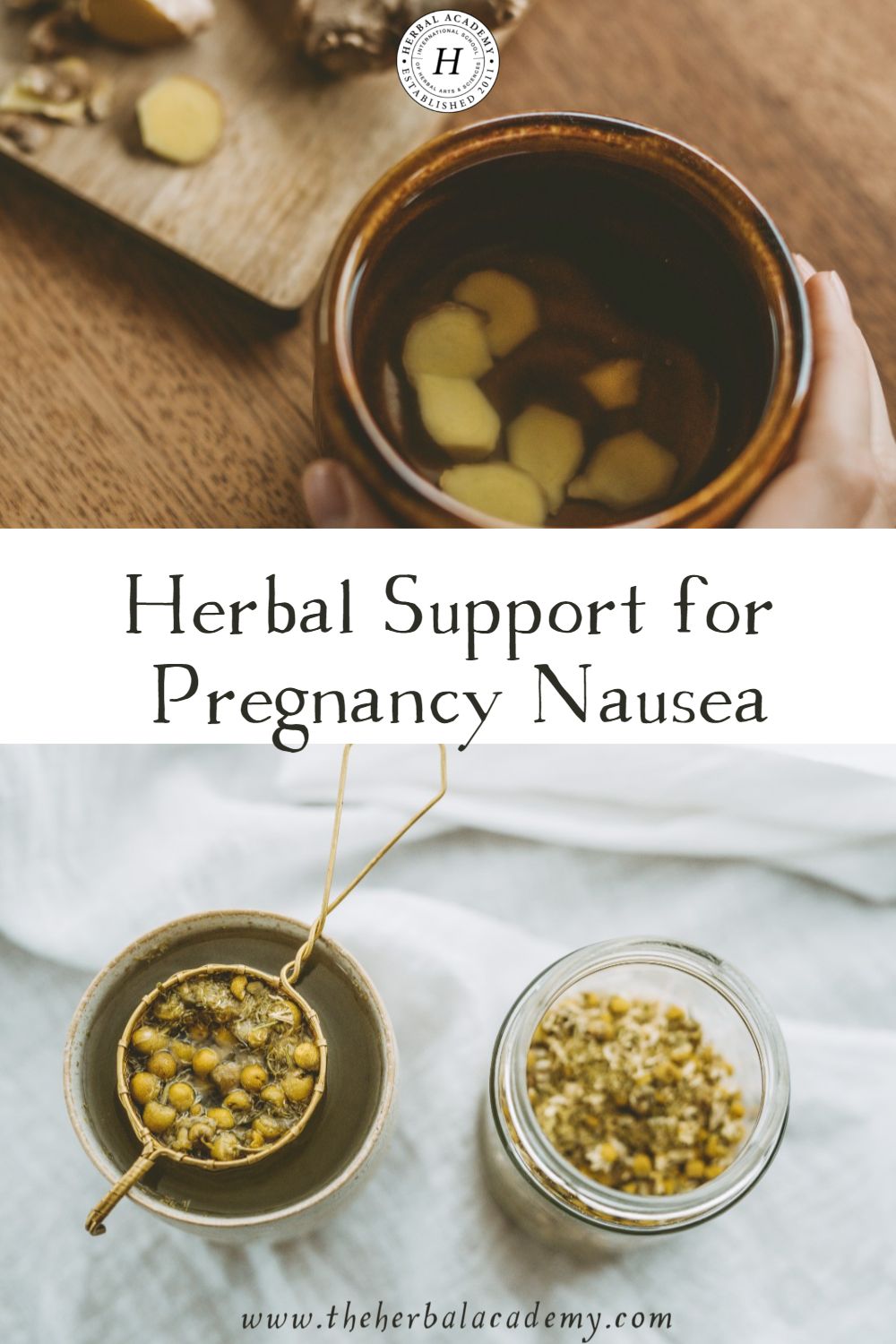
Herbal Support for Pregnancy Nausea
Pregnancy-related nausea and vomiting can affect up to 85% of pregnancies to varying degrees. Although a small amount of people do experience pregnancy nausea during their entire pregnancy (as in hyperemesis gravidarum), it normally starts around 4 to 9 weeks and usually subsides by 12 to 16 weeks (Romm, 2014).
There are different theories as to the reason for this very common condition: everything from it being a protective mechanism to a deficiency in certain nutrients or hormonal imbalances. But as yet, no one has come to a definite conclusion.
Many pregnancy discomforts can be prevented, alleviated, or at least minimized to make them more manageable. In this article, you will find some holistic approaches and herbs to combat pregnancy nausea.
Basic Holistic Approaches for Pregnancy Nausea
Possible Triggers and Root Causes
Every person experiences the intensity and the appearance of nausea a bit differently. However, these are some common triggers (Romm, 2014):
- Empty stomach, hunger, and low blood sugar (hypoglycemia)
- Strong smells
- Hormonal imbalances
- Vitamin and mineral deficiencies
- Lack of movement and exercise
- Stress, anxiety

Essential Minerals and Vitamins
Nutritional deficiencies such as too little of the various B vitamins (especially B6), magnesium, or calcium as well as too little protein or complex carbohydrates can cause pregnancy nausea (Romm, 2014).
Although multinutrient synthetic supplements are often recommended, they may not always be the best choice, as these substances act complexly with or against each other and therefore can disrupt the way the body processes the nutrients. The result may be mineral imbalances. Nourishment through very nutrient-dense foods, such as beef liver, eggs, pasture-raised dairy, fish, dark leafy greens, bivalves such as oysters, and meat can be much more comprehensive (Nichols, 2018). Nutritional needs and dietary choices tend to be individualized; therefore, guidance from your midwife, nutritionist, or doctor is important. In addition, if you are looking for reading material, the book “Real Food for Pregnancy,” by Lily Nichols is a helpful resource.
Magnesium-rich foods such as sprouted oats, raw cacao, pasture-raised dairy, and chia seeds can be a great addition to a high-quality natural supplement. Also, topical applications of magnesium baths, gels, and oils is another way to possibly supplement your mineral intake.Brewer’s yeast as well as a B-vitamin complex from sprouted buckwheat are great natural ways to increase the essential need for B vitamins.
To boost overall nourishment in daily life, mineral-rich beverages such as bone broth and coconut water are great choices, as these are easy to digest, calming on the stomach, and comforting when no other food is.
Balancing Blood Sugar
Balancing blood sugar is important for many different reasons and may be especially important for avoiding pregnancy nausea. Crackers and ginger ale are very common foods associated with easing nausea, but avoiding refined grain products and simple sugar is the best way to keep blood sugar stable, which helps reduce nausea. To keep blood sugar from dipping low, eat balanced meals with enough protein and fat alongside complex carbohydrates. Although cravings for plain refined foods like bread and pasta can increase in early pregnancy, these foods can cause spikes in blood sugar, which can aggravate feelings of morning sickness.
Also, eating frequently (about every 3 hours and also 30 minutes after waking as well as incorporating a bedtime snack) helps to keep the blood sugar from spiking in either direction.
Movement
Sometimes the degree of nausea might be lessened by taking a quick walk outside or engaging in some other mild exercise. Even if it’s not always simple when you’re unwell and exhausted, daily exercise gets the body ready for the physical demands of labor. It also improves mood, digestion, and circulation, which boosts your baby’s capacity to absorb nutrients and oxygen. Just remember to refuel lost calories and prevent low blood sugar by eating adequately before and after.
Hydration
Many people feel like beverages aggravate nausea during pregnancy, but actually, dehydration could make pregnancy nausea worse. It is important to drink plenty of liquids throughout the day. For those who are vomiting, the lost fluids must be replenished. Water enriched with minerals, fresh lemon, herbal teas safe during early pregnancy, or bone broth are choices that may be palatable and can help settle the stomach. It might be easier to drink small amounts of liquids throughout the day rather than larger amounts at once.

Herbs for Pregnancy Nausea
The following herbs are safe during pregnancy and work well for soothing nausea. By alternating between these selections, it’s easier to not get tired of a specific herb and to find out what works best for you.
Ginger (Zingiber officinale) Rhizome
Ginger, as an antispasmodic, is by far the most famous and best-studied herb for easing nausea and vomiting in pregnancy. This effect is attributed to the relaxing nature of its aromatic oils (Masé, 2013). It has been demonstrated effective in numerous clinical trials and can improve sluggish digestion by gently warming the digestive tract.
To Use:
Infusion: steep 1 teaspoon of freshly grated ginger rhizome in 1 cup of boiling water, covered, for 10 minutes, and sip throughout the day, not exceeding 2 full cups daily.
Capsules: take 2 capsules every few hours, but do not exceed 10 capsules (1 gram of ginger) per day (Ozgoli et al., 2009; Romm, 2014).
Dandelion (Taraxacum officinale) Root
Dandelion root is a bitter herb that promotes digestion, calms and strengthens the stomach, improves the appetite, and supports the liver—which must work overtime during pregnancy to process the increased quantity of hormones surging through the body. All of these functions of dandelion root plus its safety during pregnancy make it an excellent choice for addressing morning sickness either alone or in combination with other herbs, such as ginger. A dandelion root coffee can also be a lovely option!
To Use:
Infusion: 4-6 tablespoons of the dried root or twice that amount of the fresh root in 1 quart of boiling water, steeped for 4 hours. Strain and take a few mouthfuls at a time, up to 2 cups daily.
Tincture: 20 drops 2 times per day for maintenance of chronic nausea, 30 drops of tincture 3-4 times per day to target acute nausea. (Romm, 2014).

Wild Yam (Dioscorea villosa L.) Dried Rhizomes
Wild yam is an herb that reduces irritation and irritability in the hollow organs, including the stomach and the uterus. There is a long tradition of using wild yam for reducing nausea, soothing vomiting, and calming spasms in the stomach (McIntyre, 1994: Cook, 1869). Combined with dandelion root (30 drops of each), wild yam has been shown to be very effective for reducing nausea and vomiting. Also, consider sipping ginger tea throughout the day alongside wild yam tincture in order to ease nausea (Romm, 2014).
To Use:
Tincture: up to 30 drops, 4-6 times daily.
Chamomile (Matricaria chamomilla) Flower
Chamomile tea is an all-time soothing herb. It relaxes the stomach, reduces acidic sensations, and supports the liver. As a mild bitter, chamomile also stimulates gastric secretions (Gladstar, 1993) and improves the appetite (Hoffmann, 2003). It also soothes anxiety and tension.
To Use:
Infusion: Steep 1 tablespoon of chamomile in 1 cup of boiling water for 10-15 minutes. Cover while steeping to retain the volatile oils in the blossoms. Sip throughout the day or drink up to 2 cups daily (Romm, 2014).
Safety note:
Always consult your doctor or midwife before taking any herbs during pregnancy, making sure they fit your individual circumstances.
In Closing,
Even though early pregnancy nausea can be really challenging, it may lift your spirits to know that morning sickness may not be a sign of a compromised pregnancy. There’s no one-size-fits-all answer with nausea, so combining the different approaches of this article might be the solution to calm the tummy. It can take a lot of experimentation to find what’s going to work for you—and that may even shift day-to-day and week-to-week.

REFERENCES
Cook, W. (1869). Cook’s Dispensatory. Medherb.com. http://www.botanical.com/botanical/mgmh/y/yam—01.html
Gladstar, R. (1993). Herbal healing for women. Simon and Schuster.
Hoffmann, D. (2003). Medical herbalism: The science and practice of herbal medicine. Healing Arts Press.
Masé, G. (2013). The wild medicine solution. Healing Arts Press.
McIntyre, A. (1994). The complete woman’s herbal. Henry Holt.
Nichols, L. (2018). Real food for pregnancy: The science and wisdom of optimal prenatal nutrition. Lily Nichols.
Ozgoli, G., Goli, M., & Simbar, M. (2009). Effects of ginger capsules on pregnancy, nausea, and vomiting. Journal of Alternative and Complementary Medicine, 15(3), 243-246. http://doi.org/10.1089/acm.2008.0406
Romm, A. (2014). The natural pregnancy book: A complete guide to a safe, organic pregnancy and childbirth with herbs, nutrition and other holistic choices. Ten Speed Press.








